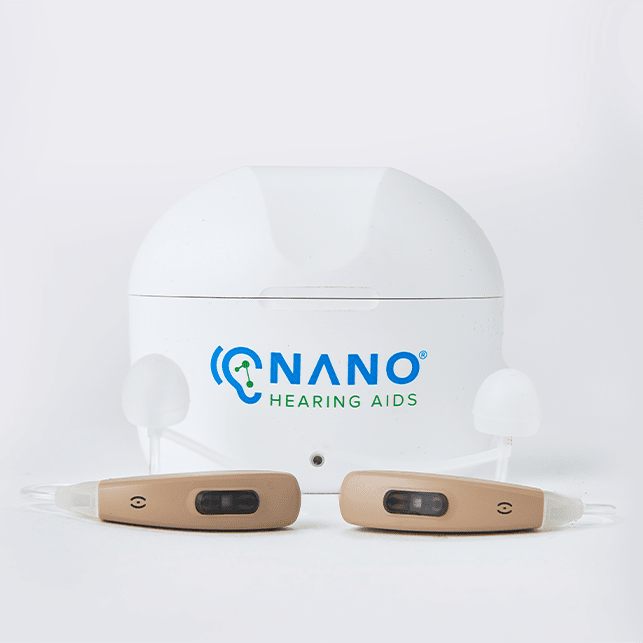Communication is a crucial part of our life, and we are used to incorporating it into every aspect of our lives. Be it everyday life, social life, or working life; we have to interact with other people. But people who have hearing loss might often feel very left out as they might not follow what other people are saying accurately. Especially in crowded places and social gatherings, it becomes harder to follow conversations with friends and family members, if you have hearing loss problems to some degree.
People with hearing loss can become frustrated and depressed due to facing these problems while interacting with other people, they might feel reluctant to join social gatherings and engage in conversations. But the self-imposed isolations don’t help at all, and it worsens the situation further as you might start to feel alone, and miserable. Many things can help in these situations. While many use hearing aids to listen better, many people with hearing loss tend to resort to lipreading. Lipreading can help a person with impaired hearing to understand speeches more and enable them to be more active in conversations. Concentrating on lip movements can really help to make up for the lack of hearing ability.
What Is Lipreading?
While some people think of lipreading as a set of skills, others believe it to be an art.
Lipreading is said to be not precise, as some words and sounds look very similar. Also, it relies so much on the lip reader's background knowledge of the language and on the quality of the speaker’s speech. But speech reading has enabled many people to function much more effectively in the hearing world.
Lipreading is considered a way of using skills, knowledge, and general awareness, along with using any clues to make sense of what you are hearing; if you have no hearing, to understand and follow what another person is saying so that you can take part in the conversation.

However, this is not always easy, as no matter how good at lipreading you are, there are some conditions are difficult to work in. For instance, lipreading is especially difficult in large, noisy gatherings and meetings and places where you listening to speakers with no loop system in place.
But overall, lipreading can be a lifeline, which will enabling you to be more confident and take a more active part in various large and small group situations. And lipreading is more critical in the world we live in, as using sign language is not always an option. We live in the hearing world where very few people know how to sign, so lipreading can come to the rescue.
How to Read Lips More Comfortably
Learning to lipread a never-ending process. There are various formations to learn, different dialects, etc. Also, every face is different, which is dealing in its way with words. However, the more you learn, the more your confidence will grow, and the more your communication ability will get enhanced and more robust. Some ways of making things more comfortable are-
You might feel tired of doing these. And honestly, lipreading requires a lot of concentration, and you’ll need to have frequent breaks, especially at first. So, when you get the chance, try to close your eyes, and relax for a few minutes. Take time out!
Benefits of Lipreading
You might be struggling to hear what a person is saying to you during a conversation if you’ve hearing loss. You might be able to pick up portions of what they’re saying, but if you learn how to lip-read you’ll be able to understand the conversation a whole lot more. Suppose you has a better hearing previously, and have developed hearing loss due to aging or exposure to noise; In that case lip-reading will allow you to participate in conversations like you used to before.
The feeling of learning how to lip-read is often described as if the world is opening up again. Lipreading will allow you to broaden your communication, and enable you to understand the things going on around you. Lip reading can provide the skills to help rebuild your social skills and confidence.
Final Words
Everyone knows that communication is a massive part of life, and without it, things can look dull and saddening. Learning how to lip-read can be beneficial to your overall well-being, and it can enable you to communicate with your loved ones more efficiently and meet new people in the process. While you are learning to do that, you can go for other helping materials too, such as hearing aids.
Check out Nano's technologically advanced yet affordable hearing aids here.
Frequently Asked Questions
Why is lipreading difficult?
Lipreading is challenging to do with every day speech because it is too quick. There are a lot of speech movements that aren't visible. Many speech patterns resemble one another, causing confusion and mistrust. Even if they sound different, some words have the same appearance.
What is the difference between Speechreading and lipreading?
Speechreading is the technique of measuring the lips, tongue, expressions, gestures, body movement, and anything else that offers indications of what the person is saying. Lipreading is the method of studying the lips to get as much speech detail as possible.
Source:
Nano Hearing Aids has strict sourcing guidelines and draws only from peer-reviewed studies, academic research institutions, and medical journals and associations. We avoid using tertiary references. You can learn more about how we ensure our content is accurate and current by reading our editorial privacy policy.




